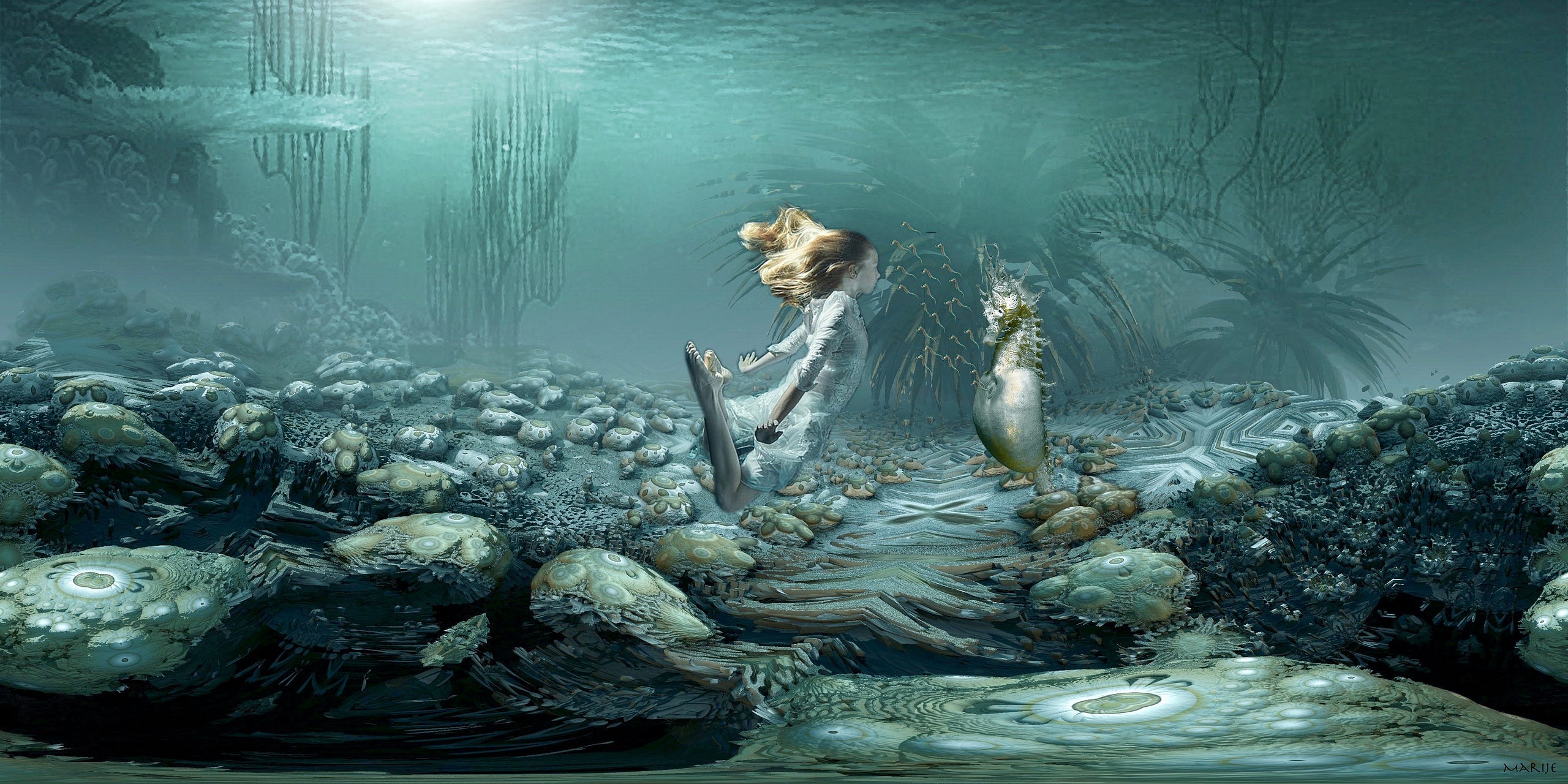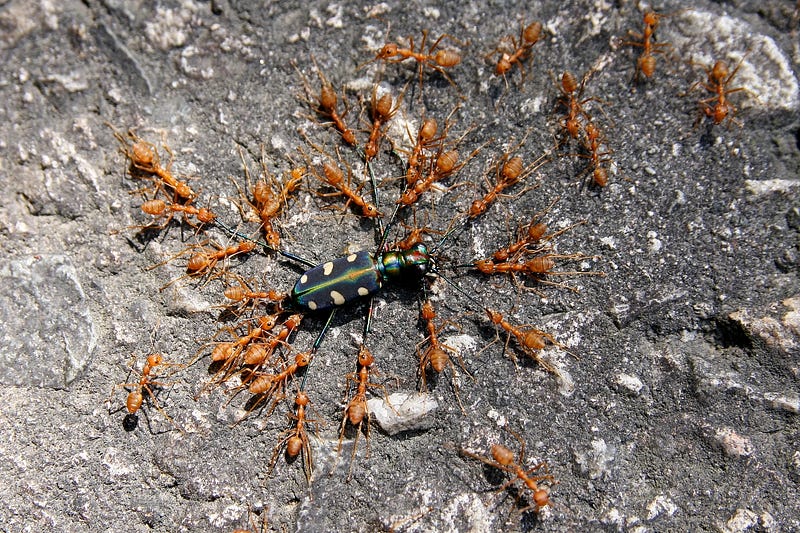
“All life is an experiment. The more experiments you make, the better.” — Ralph Waldo Emerson
Alfred North Whitehead was an English mathematician and philosopher. He is best known as the defining figure of the philosophical school known as process philosophy, which today has found application to a wide variety of disciplines, including ecology, theology, education, physics, biology, economics, and psychology, among other areas. Whitehead proposed a beautiful notion of thinking. He said. “The purpose of thinking is so our thoughts die instead of us”. We can think about innovation in a similar fashion. Innovation (and by default Reinvention) is essentially a branch of evolution, if a species does not reinvent or evolve ahead of the necessity to do so, that species will soon die out or be killed off by a predator (startup or competitor). This idea of “Darwinian innovation” is the focus of this last Thursday Thought of the year.
Seahorses: A Numbers Game
Male seahorses carry the young for their species. The female seahorse deposits up to 1,500 eggs into the male seahorse’s pouch, who then releases the young after a gestation period of 9 to 45 days. The number of young released ranges from 2,500 to 5 depending on the species. During the breeding season, the male will often mate again within days or even hours. Seahorses do not rest on their laurels, the more variants, the better the chance their species will survive. It is a numbers game. Iterations make mean a better chance of survival, more honed, more evolved, more likely to survive.
Humans are conditioned to associate failed iterations/experiments with outright failure, with shame and with judgement. Such conditioning is widespread in the workplace. The fear of failure holds us back from even trying. What if we reframed failed experiments as steps closer towards a better version? This changes how we think about experiments. Iterations are part of ecological evolution, but we need to make them commonplace in our business evolution. We need deaths to evolve. In business, this means deaths of experiments, but for this to happen we need to experiment in the first place.
Innovation Lessons from Ants

130 million years of ant evolution have produced many useful survival techniques. One such technique holds some clues for organisational evolution, as explained by Innovation show guest Aaron Dignan. When researchers release ants into a new territory, such as an empty room in the science lab, the ants will fan out in random patterns to gather information about the area. When researchers introduce a new piece of information, such as an apple, most ants converge on the apple. However, some ants continue to search for more information, they continue to seek more apples or for other sources of survival. Consider if the apple was poisonous? Because a percentage of ants continued to seek new food, not all ants would die and the species would survive. We can apply this evolutionary intelligence to organisational innovation.
Most business resources (ants) should focus on the sure thing (the business as it is today). However, a percentage of people and resources must continue to seek a new tomorrow. Everything has a decay rate, everything dies, including organisations. Therefore, evolutionary wisdom tells us we must continue to push the boundaries to ensure our survival. Seahorse wisdom tells us it is a numbers game based on the size of the organisation, more experiments equals a better chance of survival. The wisdom of ants tells us we must apportion a large percentage of resources to the sure things and the remaining resources should explore alternative futures.
Why is this evolutionary mode of thinking more relevant than ever? Organisations operate in a world strongly characterised by VUCA, the acronym to describe or to reflect on the volatility, uncertainty, complexity and ambiguity of general conditions and situations. When we operate in a VUCA environment where we do not know what will work, then we must increase exploration and variation. In doing this, some of our experiments will die, so we don’t have to.
Thanks for reading.
Episode 190 of the Innovation show is “Brave New Work: Are You Ready to Reinvent Your Organization with Aaron Dignan
“People are inherently creative given the right conditions. Trust them to sense an opportunity and pursue it fluidly. A true culture of innovation is one where you can’t tell the difference between operations and invention.” — Aaron Dignan
The way we work is broken. It takes forever to get anything done. Meetings and emails are incessant. Bureaucracy stifles talent and creativity. Is this really the best we can do? Our guest teaches companies how to eliminate red tape, tap into collective intelligence, and rethink long-held traditions that no longer make sense. In Brave New Work, he shows you how to revolutionise the way you, your team and your company works forever.
· Have fewer but better meetings
· Create a culture of honesty, transparency and trust
· Cut down on rules to be more efficient
· Be more agile and adaptive
· Reignite passion and energy throughout your organisation
We welcome Aaron Dignan, the author of “Brave New Work: Are You Ready to Reinvent Your Organization?”
Have a Listen:
Soundcloud https://lnkd.in/gBbTTuF
Spotify http://spoti.fi/2rXnAF4
iTunes https://apple.co/2gFvFbO
Tunein http://bit.ly/2rRwDad
iHeart http://bit.ly/2E4fhfl
More about Aaron here: https://www.aarondignan.com